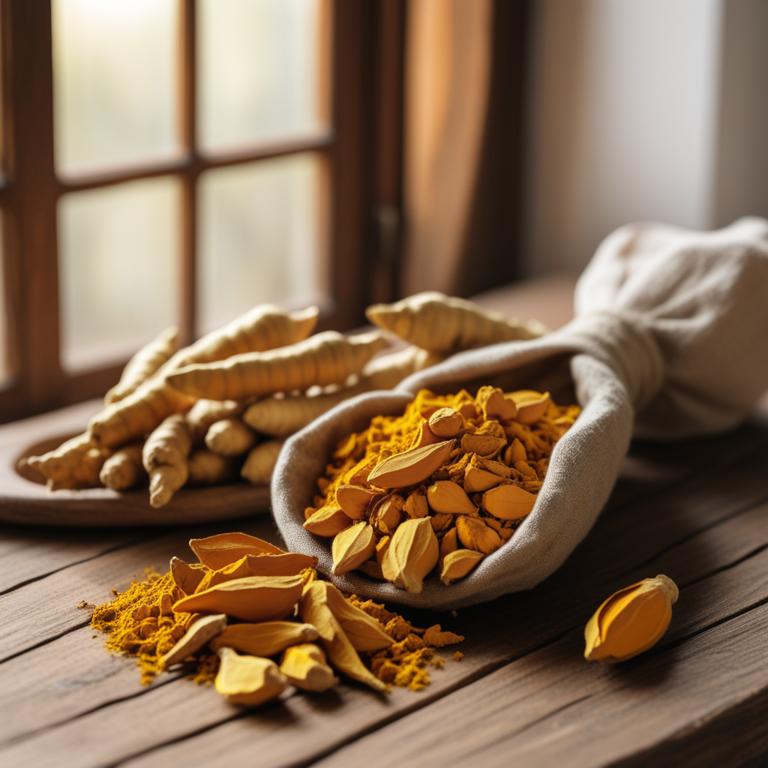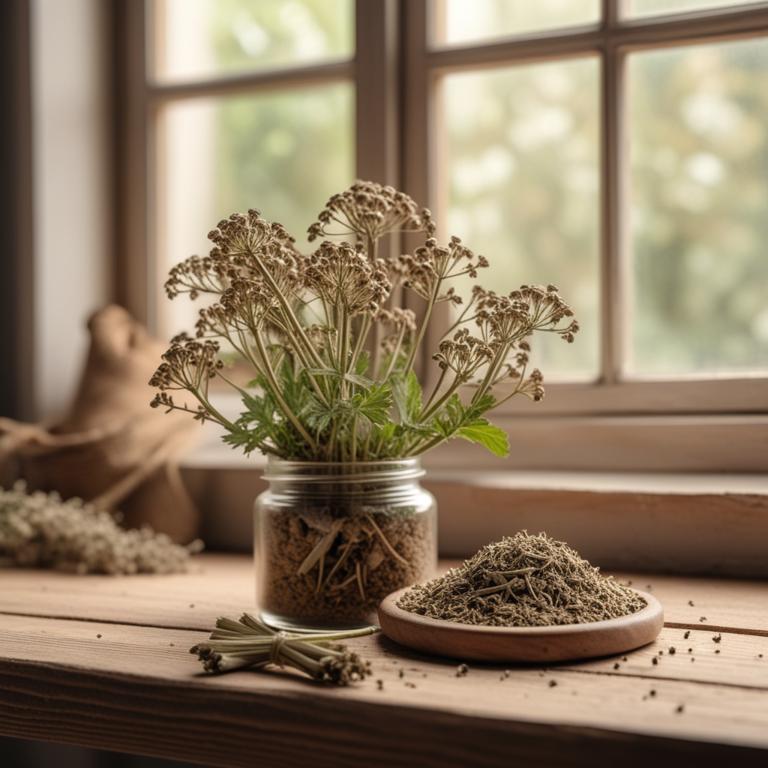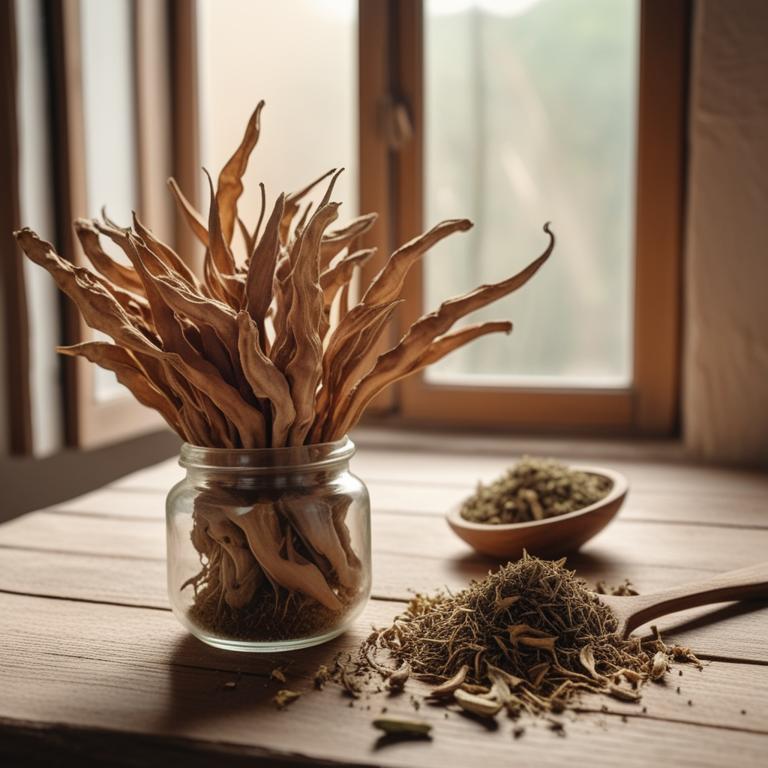Updated: Dec 1, 2024
Angina and Herbal Medicine: Causes, Medicinal Herbs, and Preparations
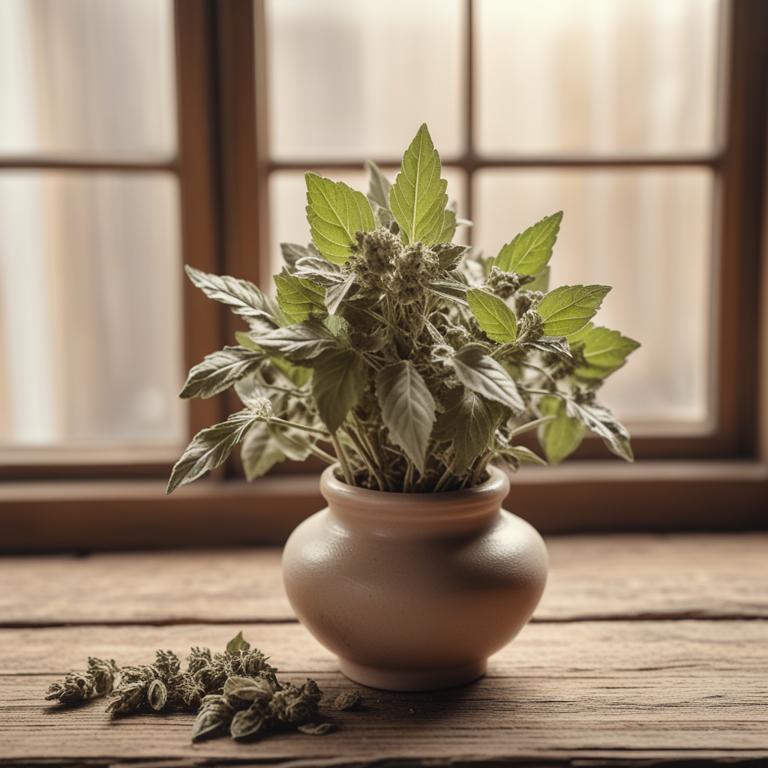
Angina is a common heart condition where the heart doesn't get enough blood and oxygen, causing chest pain or discomfort.
It can make everyday activities feel exhausting, and even simple tasks like walking or climbing stairs can leave you breathless. Angina is usually caused by narrowed arteries, high blood pressure, or atherosclerosis, a condition where plaque builds up in the arteries. To manage angina, some people turn to herbal remedies. Certain herbs have been found to have a positive effect on heart health. For example, hawthorn is known to improve blood flow and reduce blood pressure.
Ginkgo biloba helps to dilate blood vessels, allowing more oxygen to reach the heart. Garlic, with its antioxidant properties, can also help lower cholesterol levels and prevent blood clots. Herbal teas are a popular way to consume these remedies. A cup of hawthorn tea, made by infusing dried hawthorn flowers in hot water, can be a soothing way to calm the heart. Ginkgo biloba tea, made from the leaves of the ginkgo biloba tree, can be enjoyed hot or cold. You can also make a tea by combining garlic with other herbs like ginger or turmeric.
These teas can be consumed regularly to help manage angina symptoms.
Table of Contents
What triggers or causes angina to occur?
The main causes of angina are linked to cardiovascular health issues.
Atherosclerosis, a condition where plaque builds up in the arteries, is a significant contributor to angina. This buildup narrows the arteries, reducing blood flow to the heart, which can lead to chest pain during physical activity. Hypertension, or high blood pressure, is another major cause of angina. When blood pressure is consistently high, it puts extra strain on the heart, making it work harder to pump blood. This increased workload can lead to chest pain and shortness of breath. Diabetes is also a risk factor for angina.
High blood sugar levels can damage blood vessels and nerves, leading to poor circulation and increased risk of heart disease. This can result in reduced blood flow to the heart, causing angina. Coronary Artery Disease (CAD) is a leading cause of angina. It occurs when the coronary arteries, which supply blood to the heart, become narrowed or blocked. This can be due to atherosclerosis or other factors, leading to reduced blood flow and chest pain. Lastly, hyperlipidemia, or high levels of bad cholesterol, can contribute to angina. When there's too much bad cholesterol in the blood, it can build up in the arteries, leading to atherosclerosis and reducing blood flow to the heart.
This can cause chest pain and other symptoms of angina.
What benefits can be gained from using herbs to alleviate angina?
Using herbs for angina can be very helpful.
One of the main benefits is that they can help to relax blood vessels, making it easier for blood to flow to the heart. This can reduce the frequency and severity of angina attacks.
Herbs can also help to lower blood pressure, which is a common cause of angina. Additionally, they can help to improve circulation and reduce inflammation in the blood vessels. Some herbs can even help to reduce the workload of the heart, which can become overworked when trying to pump blood through narrowed or blocked blood vessels.
By reducing the workload and improving circulation, these herbs can provide relief from angina symptoms and help to improve quality of life.
What are the main medicinal herbs for managing angina symptoms?

Herbs have been used for centuries to help manage angina, a condition that causes chest pain due to reduced blood flow to the heart.
One of the most well-known herbs for angina is Ginkgo biloba. It improves blood flow by widening blood vessels and reducing inflammation, making it easier for the heart to get the oxygen it needs. This herb also has antioxidant properties, which help protect the heart from damage caused by free radicals. Another herb that can help with angina is Panax ginseng. It helps to reduce inflammation and improve blood flow, just like Ginkgo biloba. Ginseng also has anti-arrhythmic properties, which help regulate the heartbeat and prevent irregular heart rhythms that can contribute to angina. Crataegus monogyna, also known as hawthorn, is another herb that has been used for centuries to help manage angina. It improves heart function and blood flow, and has antioxidant properties that help protect the heart.
Hawthorn also has anti-inflammatory properties, which can help reduce the risk of heart disease. Ginger, or Zingiber officinale, is another herb that can help with angina. It has anti-inflammatory properties that can help reduce inflammation in the blood vessels, making it easier for the heart to get the oxygen it needs. Ginger also has antioxidant properties, which can help protect the heart from damage. Rauvolfia serpentina, also known as snake root, has been used in traditional medicine for centuries to help manage angina. It has anti-inflammatory properties that can help reduce inflammation in the blood vessels, making it easier for the heart to get the oxygen it needs. Rauvolfia also has antioxidant properties, which can help protect the heart from damage. These herbs work together to help improve blood flow, reduce inflammation, and protect the heart from damage.
By taking these herbs, people with angina may be able to reduce their symptoms and improve their quality of life.
What herbal remedies are most widely used for angina?

Herbal preparations can be a good option for people with angina.
A tincture is a liquid extract that can be taken as a small dose under the tongue, where it's quickly absorbed into the bloodstream, providing fast relief from angina symptoms. Capsules contain dried herbs that can be swallowed with water, providing a more controlled release of active ingredients. Decoctions are made by boiling herbs in water, which can be effective for releasing compounds that help relax blood vessels and improve blood flow to the heart.
Infusions, on the other hand, are made by steeping herbs in hot water, releasing their active ingredients and making them easier to absorb. Some herbal creams can be applied topically to the skin, where they can help reduce inflammation and improve blood flow to the heart. For example, hawthorn tincture and ginkgo biloba capsules may help improve blood flow and reduce symptoms of angina, while lavender and passionflower infusions may help calm the heart and reduce anxiety. (Note: This information is for educational purposes only and should not be considered as a substitute for professional medical advice.
Always consult a healthcare professional before using herbal preparations.).
Additional Resources:
What herbs should be avoided when suffering from angina?
If you have angina, it's best to avoid certain herbs that can make your condition worse.
Ephedra sinica, also known as Chinese ephedra, can increase your heart rate and blood pressure, which can be problematic for people with angina. This can lead to more frequent and severe angina attacks, making it harder for you to breathe and increasing your risk of a heart attack. Catha edulis, commonly known as khat, can also cause your heart rate and blood pressure to rise, making it a bad choice for people with angina. Similarly, Pausinystalia johimbe, also known as yohimbe, can cause your blood vessels to constrict, making it harder for your heart to get the oxygen it needs.
Paullinia cupana, also known as guarana, is another herb to watch out for. While it may seem harmless, it can also increase your heart rate and blood pressure, making it a potential trigger for angina attacks. Taxus baccata, also known as yew, is particularly concerning. It contains a toxic compound called taxine, which can be deadly in high doses. However, even small amounts can cause problems for people with angina, including increased heart rate and blood pressure.
It's best to avoid this herb altogether if you have angina, as the risks far outweigh any potential benefits.
FAQ
Are there any specific herbs that can prevent angina?
Some research suggests that certain herbs like ginseng and hawthorn may help improve blood flow and reduce angina symptoms.
Ginseng is believed to strengthen the heart, while hawthorn is thought to dilate blood vessels, allowing more oxygen to reach the heart.
However, more studies are needed to confirm their effectiveness.
Is it safe to use herbal remedies for angina during pregnancy?
Herbal remedies for angina during pregnancy are not well understood and may not be safe.
Some herbs can cause blood pressure changes or interact with medications, which can be a concern for pregnant women.
It's best to be cautious and talk to your healthcare provider about any herbal remedies you're taking.
Are there any herbs that can reduce the frequency of angina?
Some herbs like hawthorn and garlic have been studied for their potential to reduce angina frequency.
Hawthorn may help improve blood flow and lower blood pressure, while garlic's active compounds may help relax blood vessels and reduce inflammation.
These herbs may also help reduce the risk of heart disease.
Related Articles
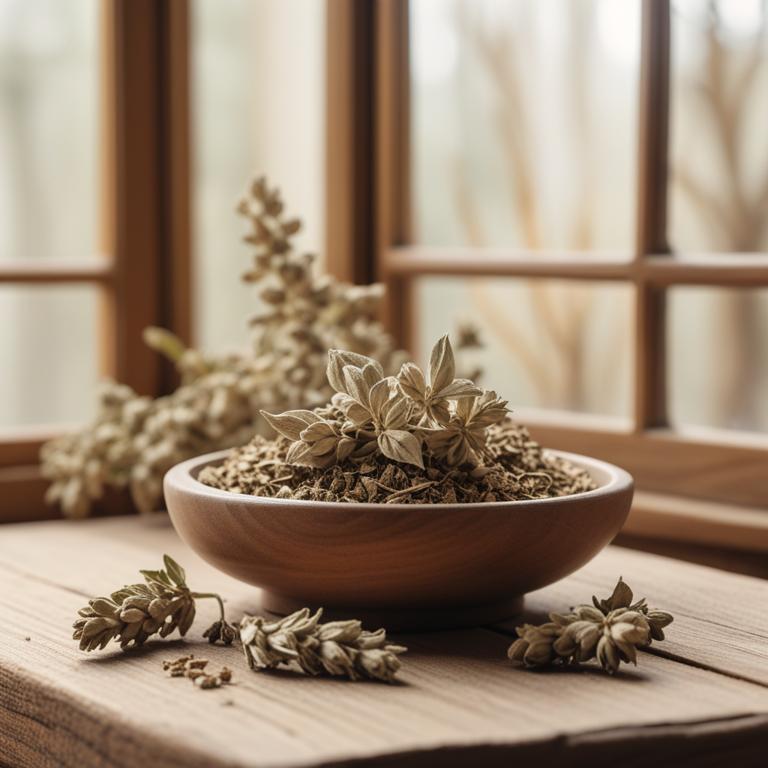
Hypertension and Herbal Remedies: Causes and Medicinal Herbs for Treatment
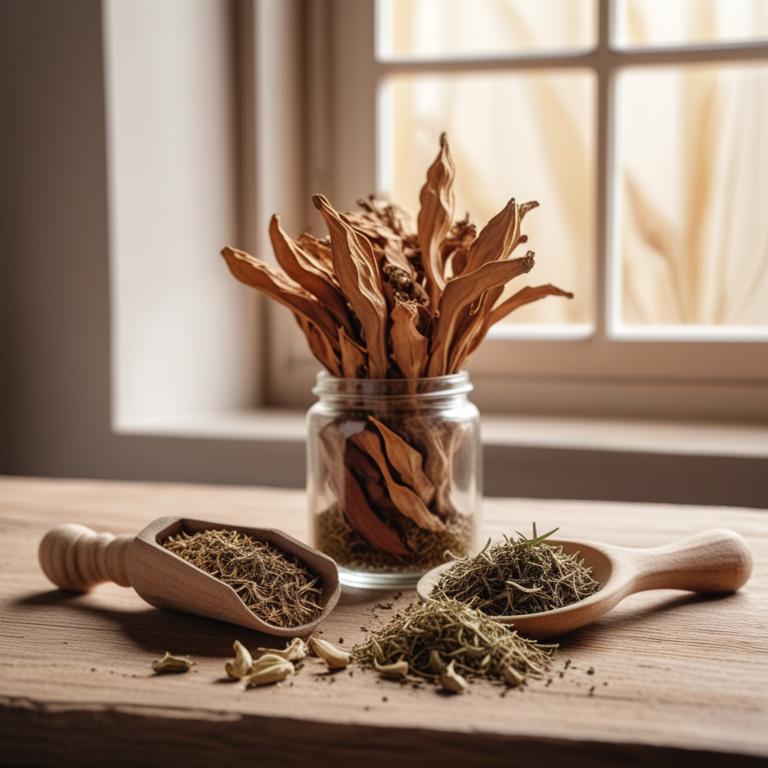
Heart Pain Causes and Medicinal Herbs for Pain Relief
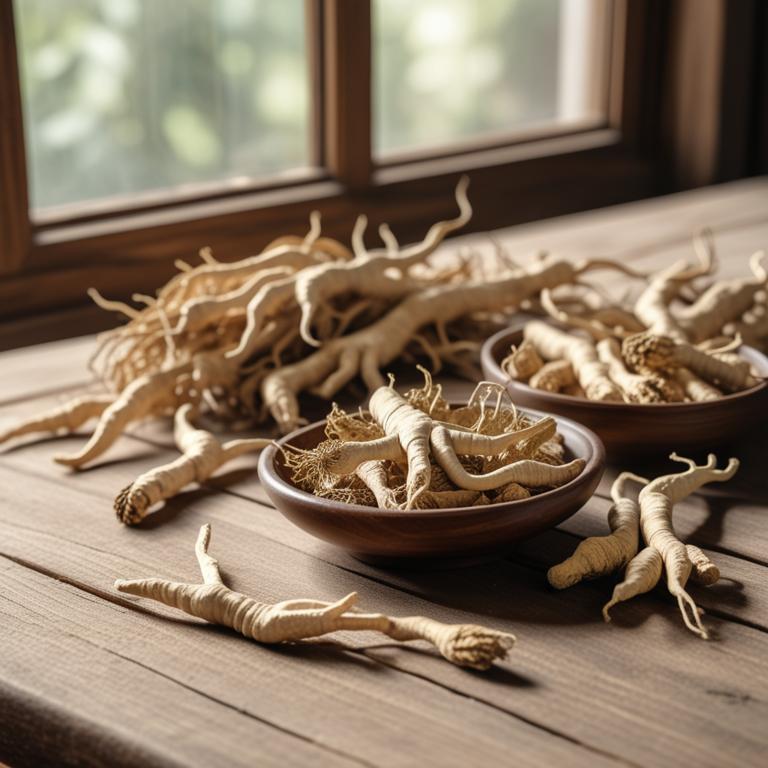
Overcoming Low Blood Pressure: Causes, Herbal Remedies, and Effective Preparations
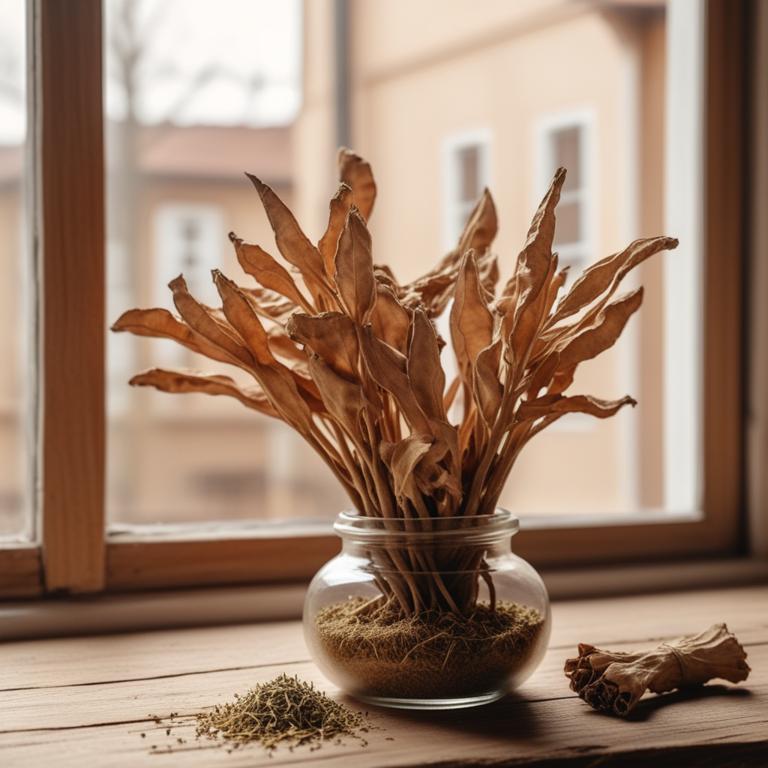
Angina and Herbal Medicine: Causes, Medicinal Herbs, and Preparations
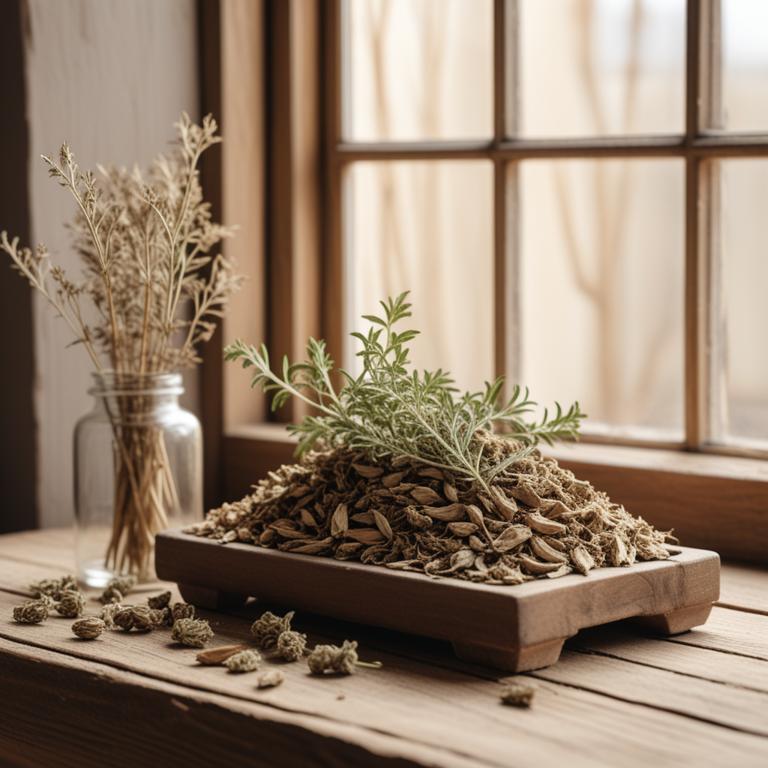
The Causes and Herbal Treatments of High Blood Pressure
